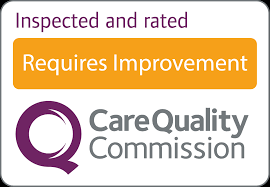
Meeting the Essential Requirements: A Key to Success in Today’s World
The Importance of Meeting Requirements in Today’s World
In every aspect of life, meeting requirements is crucial for success and progress. Whether it be in education, business, or personal relationships, the ability to fulfil certain criteria or standards is what sets individuals and organisations apart.
When it comes to education, students must meet the academic requirements set by their institutions to advance to higher levels of learning. This ensures that they have acquired the necessary knowledge and skills to succeed in their chosen field.
Similarly, in the business world, meeting regulatory requirements is essential for companies to operate legally and ethically. Compliance with industry standards and regulations not only protects businesses from legal repercussions but also builds trust with customers and stakeholders.
Moreover, meeting customer requirements is paramount for any successful business. Understanding and fulfilling the needs and expectations of customers are key drivers of customer satisfaction and loyalty.
On a personal level, meeting personal goals and aspirations requires dedication and effort towards fulfilling specific requirements. Whether it be achieving a fitness goal or learning a new skill, setting clear objectives and working towards meeting them is essential for personal growth.
In conclusion, whether it is in education, business, or personal development, the importance of meeting requirements cannot be overstated. It is the foundation upon which success and progress are built, guiding individuals and organisations towards achieving their full potential.
Five Essential Strategies for Effective Requirement Management
- Ensure that all requirements are clearly stated and understood.
- Prioritize requirements based on their importance and impact.
- Regularly review and update requirements as needed.
- Involve stakeholders in the requirement gathering process.
- Document all requirements thoroughly for future reference.
Ensure that all requirements are clearly stated and understood.
It is essential to ensure that all requirements are clearly stated and thoroughly understood to facilitate successful outcomes. By providing explicit and unambiguous guidelines, individuals involved can align their efforts towards meeting the specified criteria effectively. Clear communication of requirements helps avoid misunderstandings, minimizes errors, and fosters a shared understanding among stakeholders. This proactive approach not only streamlines processes but also enhances collaboration and accountability, ultimately leading to the achievement of desired goals.
Prioritize requirements based on their importance and impact.
When managing requirements, it is crucial to prioritise them based on their significance and influence. By identifying and focusing on the most critical requirements first, organisations can ensure that resources are allocated effectively and that key objectives are met. Prioritising requirements based on their importance and impact allows for a structured approach to development, enabling teams to address high-priority items efficiently while maintaining a clear focus on achieving desired outcomes.
Regularly review and update requirements as needed.
It is essential to regularly review and update requirements as needed to ensure that they remain relevant and aligned with current objectives. By periodically assessing and adjusting requirements, businesses can adapt to changing market conditions, technological advancements, and customer preferences. This proactive approach not only helps in maintaining efficiency and effectiveness but also allows organisations to stay agile and responsive in a dynamic business environment.
Involve stakeholders in the requirement gathering process.
In order to effectively gather requirements, it is essential to involve stakeholders in the process. By engaging key stakeholders from various levels of the organisation, including end-users and decision-makers, valuable insights and perspectives can be gathered to ensure that the requirements accurately reflect the needs and expectations of all parties involved. This collaborative approach not only fosters a sense of ownership and commitment among stakeholders but also increases the likelihood of delivering a solution that meets the desired outcomes and objectives.
Document all requirements thoroughly for future reference.
It is essential to document all requirements thoroughly for future reference. By meticulously recording the specific criteria and standards that need to be met, individuals and organisations can ensure clarity and consistency throughout a project or process. Documenting requirements also serves as a valuable reference point for future iterations or similar projects, enabling smooth transitions and informed decision-making. Additionally, thorough documentation helps in tracking progress, identifying potential challenges, and facilitating effective communication among team members.